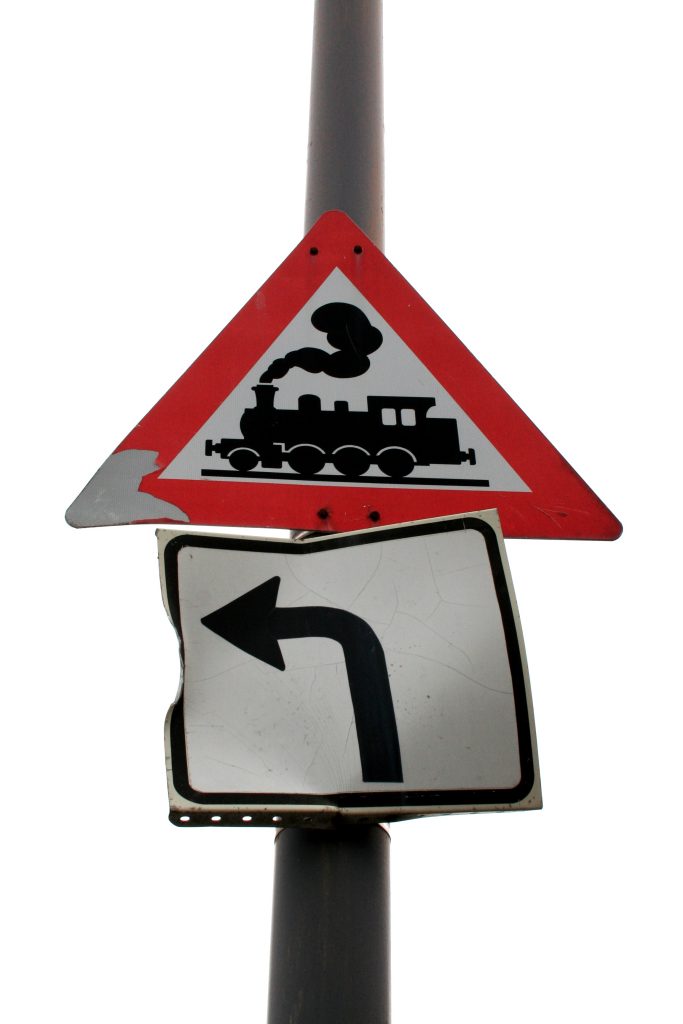 In joint real estate ventures, all partners are presumed to be equal unless agreed otherwise. All parties should have equal decision-making power, share equally in gains and losses, and possess equal interests in the subject property. Cooperation among the partners is essential to the success of the venture. Each person must enter into the transaction with an open mind towards other partner’s ideas and business tactics. However, when one person uses the other partners for his own personal gain, litigation usually follows. This was the unfortunate situation in the following case.
In joint real estate ventures, all partners are presumed to be equal unless agreed otherwise. All parties should have equal decision-making power, share equally in gains and losses, and possess equal interests in the subject property. Cooperation among the partners is essential to the success of the venture. Each person must enter into the transaction with an open mind towards other partner’s ideas and business tactics. However, when one person uses the other partners for his own personal gain, litigation usually follows. This was the unfortunate situation in the following case.
The defendant, Mr. Paul Barranco, wanted to purchase three apartment complexes in Baton Rouge, LA as investment properties. After failing to obtain financing on his own, he enlisted the help of Plaintiffs, Mr. Brignac and Mr. Godchaux. The three parties formed God-Brig-Bar, LLC. Plaintiffs sent their tax information to Mr. Barranco for the purposes of obtaining financing. Mr. Barranco advised Plaintiffs that he was selling another apartment complex located on Ned Drive in Baton Rouge and that the proceeds from that sale may be used as a down-payment on the three apartment complexes. Each Plaintiff gave a check to Mr. Barranco for their one-third deposit amount on the three complexes in the amount of $10,000.00 each.
Mr. Barranco deposited the funds and advised Plaintiffs that Palisades Properties expressed interest in acquiring the purchase agreements to the three properties. The sale of the three complexes to Palisades Properties would yield $1,132,000.00 in profits to be split three ways. Mr. Barranco drafted and signed a letter of intent in his name only to Palisades Properties, stating that he would sell it the three purchase agreements, one for each complex. Plaintiffs advised Mr. Barranco that they wanted the letter of intent changed to include all of their names. Mr. Barranco refused to do so and asserted that it might scare off the potential buyer since they were already nervous about such a large investment.
 Louisiana Personal Injury Lawyer Blog
Louisiana Personal Injury Lawyer Blog


 Parents love their children very much. It is always a difficult experience to involve a child in a lawsuit. Such an emotionally difficult experience can be soothed by having the best attorney possible. Losing a lawsuit on behalf of one’s child is a traumatic experience, especially after an accident. This is exactly what happened in a recent case of the Louisiana First Circuit Court of Appeal.
Parents love their children very much. It is always a difficult experience to involve a child in a lawsuit. Such an emotionally difficult experience can be soothed by having the best attorney possible. Losing a lawsuit on behalf of one’s child is a traumatic experience, especially after an accident. This is exactly what happened in a recent case of the Louisiana First Circuit Court of Appeal.  Louisiana law awards damages awarded for injuries caused by the intentional, negligent or reckless act of another. These damages are determined by the finder of fact – a jury or judge – after hearing the evidence presented at trial. Even if the factfinder finds that the defendant is at fault, sometimes it is not clear cut what type of damages should be awarded and what amount is proper. A recent case out of Livingston Parish demonstrates how courts in Louisiana allocate damages in personal injury cases.
Louisiana law awards damages awarded for injuries caused by the intentional, negligent or reckless act of another. These damages are determined by the finder of fact – a jury or judge – after hearing the evidence presented at trial. Even if the factfinder finds that the defendant is at fault, sometimes it is not clear cut what type of damages should be awarded and what amount is proper. A recent case out of Livingston Parish demonstrates how courts in Louisiana allocate damages in personal injury cases. When a driver fails to satisfy the standard of care, the driver’s negligence during an automobile accident may be considered in a lawsuit. The standard of care is the amount of caution that must be exercised by a person who is under a duty of care. A case out of Ouachita Parish demonstrates the special rules that a left-turning driver must follow and the presumption of negligence that attaches to a left-turning driver.
When a driver fails to satisfy the standard of care, the driver’s negligence during an automobile accident may be considered in a lawsuit. The standard of care is the amount of caution that must be exercised by a person who is under a duty of care. A case out of Ouachita Parish demonstrates the special rules that a left-turning driver must follow and the presumption of negligence that attaches to a left-turning driver. The Louisiana Workers’ Compensation Act aims to protect employees who suffer on-the-job injuries. But in order to benefit from the act, plaintiffs have the burden of proving their claims. This means providing clear and convincing documentation of your injuries and work limitations. In a recent case, the Louisiana Second Circuit Court of Appeal found that the plaintiff failed in meeting this burden of proof.
The Louisiana Workers’ Compensation Act aims to protect employees who suffer on-the-job injuries. But in order to benefit from the act, plaintiffs have the burden of proving their claims. This means providing clear and convincing documentation of your injuries and work limitations. In a recent case, the Louisiana Second Circuit Court of Appeal found that the plaintiff failed in meeting this burden of proof. Appellate courts are reluctant to reverse a trial court’s judgment based on the argument the trial court failed to properly evaluate the evidence. Deference to a lower court is the norm. A recent decision by the Louisiana First Circuit Court of Appeal in DeBlanc v. Albertson’s highlights the principle of judicial deference.
Appellate courts are reluctant to reverse a trial court’s judgment based on the argument the trial court failed to properly evaluate the evidence. Deference to a lower court is the norm. A recent decision by the Louisiana First Circuit Court of Appeal in DeBlanc v. Albertson’s highlights the principle of judicial deference. According to the Alzheimer’s Association, 5 million people are currently living with Alzheimer’s disease. Statistics also show that people age 70 are 61% more likely to die from the disease before they turn the age of 80, compared to 30% of the people living without it. So what is Alzheimer’s disease? It is a type of dementia that causes problems with memory, thinking, and behavior. Symptoms worsen over time, rarely get better and are so severe that they can interfere with the daily lives of these individuals. A recent case out of the Louisiana First Circuit Court of Appeal is illustrative of just some of the hardships those who suffer from Alzheimer’s disease face.
According to the Alzheimer’s Association, 5 million people are currently living with Alzheimer’s disease. Statistics also show that people age 70 are 61% more likely to die from the disease before they turn the age of 80, compared to 30% of the people living without it. So what is Alzheimer’s disease? It is a type of dementia that causes problems with memory, thinking, and behavior. Symptoms worsen over time, rarely get better and are so severe that they can interfere with the daily lives of these individuals. A recent case out of the Louisiana First Circuit Court of Appeal is illustrative of just some of the hardships those who suffer from Alzheimer’s disease face.  Concursus proceedings can be complicated. In a concursus proceeding, multiple parties assert competing claims to money or property.
Concursus proceedings can be complicated. In a concursus proceeding, multiple parties assert competing claims to money or property.  “An eye for an eye will only make the world blind,” said Mahatma Gandhi. In a recent case, the Ritz-Carlton Hotel Company, LLC claimed that one of its employees filed a lawsuit against it as retaliation for her dismissal from the company. The Louisiana Fifth Circuit Court of Appeal was faced with the question of whether that employee actually suffered a compensable work-related injury or whether her claims were suspect.
“An eye for an eye will only make the world blind,” said Mahatma Gandhi. In a recent case, the Ritz-Carlton Hotel Company, LLC claimed that one of its employees filed a lawsuit against it as retaliation for her dismissal from the company. The Louisiana Fifth Circuit Court of Appeal was faced with the question of whether that employee actually suffered a compensable work-related injury or whether her claims were suspect. Louisiana law strongly encourages arbitration as a method of resolving disputes. Arbitration is a form of alternative dispute resolution whereby parties agree to be bound by the decision of neutral third parties. Arbitration promotes efficiency in dispute resolution because it attempts to resolve disputes before court involvement becomes necessary. It prevents courts from becoming backlogged with excessive caseloads. While arbitration promotes court efficiency, it can be a burdensome roadblock to certain litigants seeking recovery. A recent Louisiana case is illustrative.
Louisiana law strongly encourages arbitration as a method of resolving disputes. Arbitration is a form of alternative dispute resolution whereby parties agree to be bound by the decision of neutral third parties. Arbitration promotes efficiency in dispute resolution because it attempts to resolve disputes before court involvement becomes necessary. It prevents courts from becoming backlogged with excessive caseloads. While arbitration promotes court efficiency, it can be a burdensome roadblock to certain litigants seeking recovery. A recent Louisiana case is illustrative.